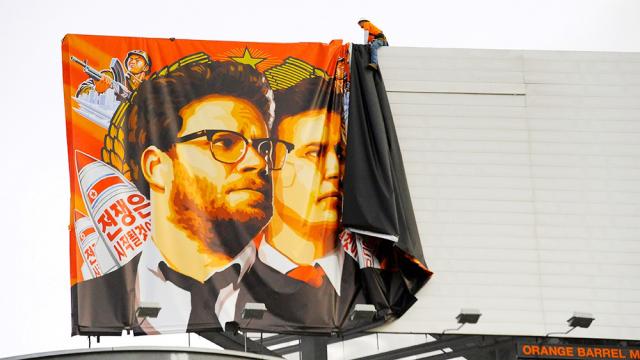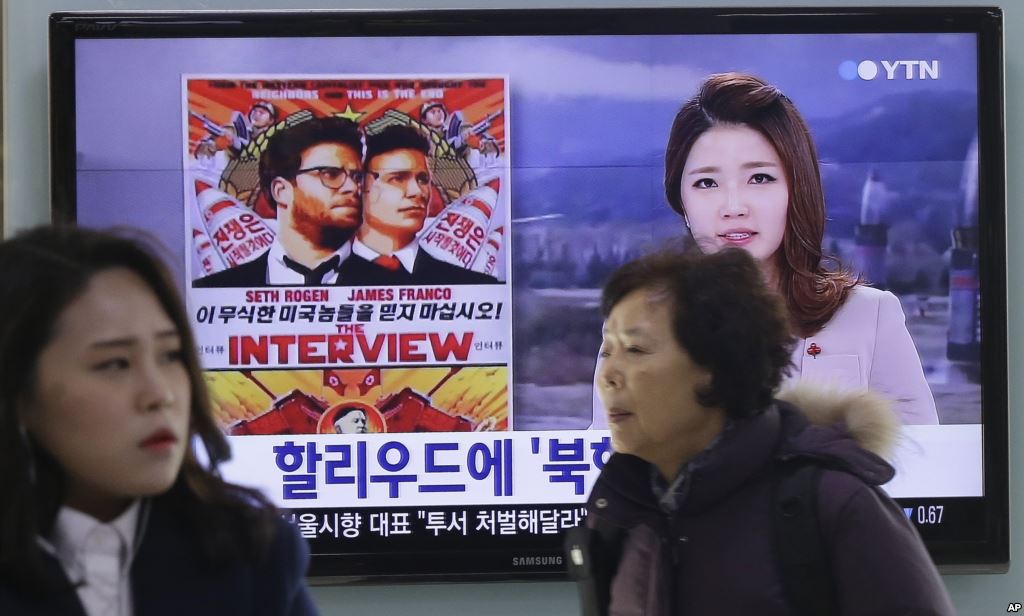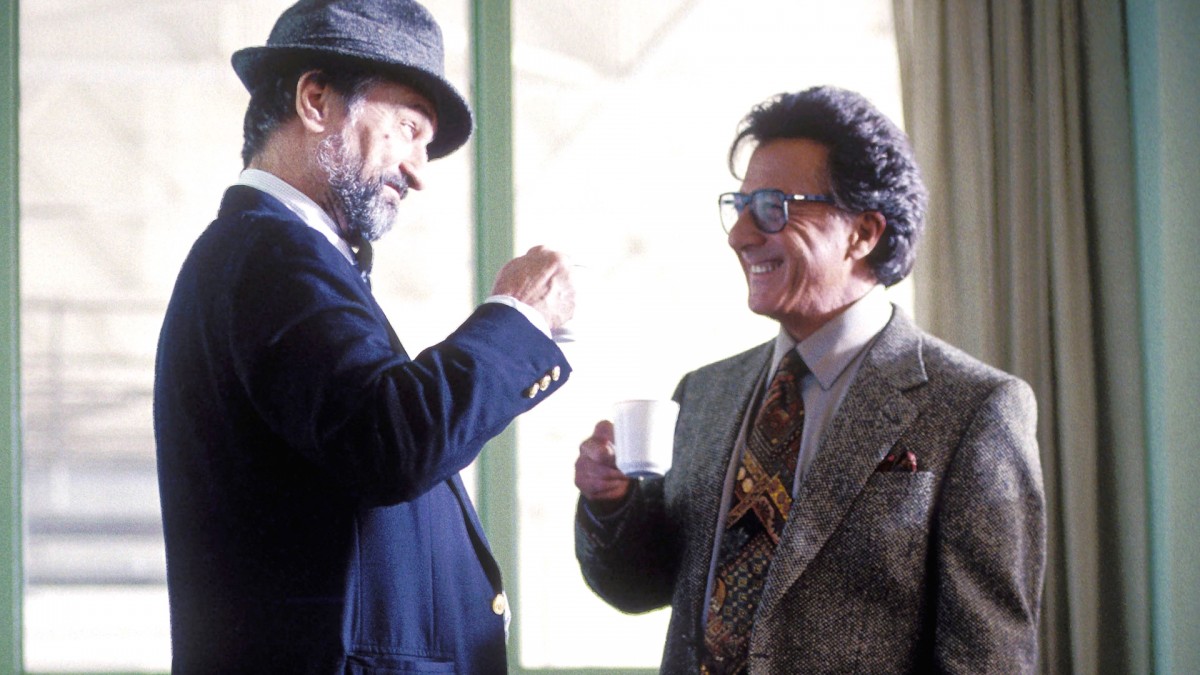
In the 1997 movie "Wag the Dog," Robert de Niro, whose character is hired by the White House as a professional media manipulator, enlists the help of Dustin Hoffman, who plays a famous Hollywood producer, to distract the media from a sex scandal involving the president and a young girl near the end of the president’s re-election campaign. De Niro’s character fabricates a war with Albania, and Hoffman’s character sells the war to the public with emotional propaganda, fake war heroes, and clever branding. By the end of the campaign, the fake war has dominated the news cycle, the president’s poll numbers are ahead of his opponent’s by a double-digit margin, and the news of his sex scandal was confined to the back pages of the papers. While the plot is fictional, it shines a light on the government’s history of deception in the media and raises questions of why the CIA torture report last month was so quickly forgotten.
The Senate report over the CIA’s torture practices is old news. At least, that’s what those responsible would like to have us think. What should have been the most significant story of the year has now been cleverly buried in the news cycle by a faux non-story that’s widely believed to have been perpetrated by insiders. So how were Americans convinced to forget about the proof that officials at the highest levels in our own government knowingly violated multiple international laws? And who did the convincing?
The “Hack” Overshadows the CIA Report
In late November 2014, hackers calling themselves the “Guardians of Peace” (GOP) released emails between Sony executives and producers to the internet. The emails became a hot national topic, and by Dec. 17, the New York Times reported that U.S. officials were blaming North Korea for the hack, but with only circumstantial evidence to go on.
President Obama vowed retribution, and a few days later, North Korea’s internet was blacked out. By Dec. 30, cybersecurity firms independently investigating the hack found that the hackers had to have had intimate knowledge of Sony’s infrastructure to pull it off, meaning that one of the hackers was likely a Sony insider. Despite this, U.S. officials stuck with their assumption, saying North Korea must have hired foreign hackers.
Oddly enough, the ongoing developments of the Sony hack continued to be a top news story – despite the Dec. 9 release of the Senate’s report on CIA torture practices. While the U.S. signed off on international treaties banning torture, the CIA nonetheless allowed untrained employees, some of whom had mental health issues, to inflict tremendous acts of cruelty against detainees who hadn’t even been accused of crimes. One detainee was chained to a cold concrete floor and died of hypothermia. Others were taken out of their cells, stripped naked, dragged down hallways and stairways, and punched and kicked repeatedly while their hands and feet were bound.
A common practice at CIA torture facilities was anally forcing nutrients into detainees as a form of feeding, which one academic has said is equivalent to rape. By 2005, most of the torture operations had been outsourced to private contractors, and by 2007, the CIA granted legal immunity to all of the private parties involved in torturing detainees.
Knowledge of these practices carried up to the highest levels of government, and great measures were taken to keep other government officials around the world in the dark. On pages 13 and 14 of the Senate Intelligence Committee’s investigation of the report, it was found that the White House instructed the CIA to keep the secretaries of Defense and State in the dark about the program, saying “Secretary Powell would blow his stack” if he was given the details.
The CIA also didn’t tell U.S. ambassadors about its torture of detainees, and instructed foreign governments in countries that hosted CIA torture prisons to not inform U.S. ambassadors of the facilities. The CIA had even previously acknowledged to Congress that torture as an interrogation tactic was “counterproductive” and would “probably result in false answers,” yet tortured anyway.
The calls for prosecution of torturers and their bosses has been widespread, from the editorial boards of the Washington Post and New York Times to famed actor/director Robert Redford. However, prosecution seems less likely after the din of the Sony hack and the resulting jabs between the U.S. and North Korean governments took hold of the news cycle. Sony needed to promote its new film The Interview, slated for a Christmas day release, and the CIA needed to be out of the spotlight. This begs the question: could Sony and U.S. government officials have possibly been collaborating to help each other?
Sony’s Recent History with U.S. Agencies
The suggestion that a major movie company and the U.S. government are in cahoots isn’t that outlandish. On Dec. 18, The Daily Beast published segments of a leaked email by Sony Entertainment CEO Michael Lynton, in which he says he “spoke with someone very senior at State” about the final scene of The Interview, in which Kim Jong-Un is killed. The State Department later admitted this “very senior” person who talked with Sony executives was Daniel Russel, Assistant Secretary of State for East Asian and Pacific Affairs.
That Daily Beast report also shows through correspondence between Lynton and Bruce Bennett – a RAND Corporation analyst specializing in North Korean affairs – that Robert King, a U.S. Special Envoy for North Korean human rights issues, was a consultant for the film. While the State Department maintains that production studios aren’t required to have their content approved by government officials, the full picture shows the high-level access and cozy relationship Sony executives have with the U.S. government.
The CIA’s Intimate History with the Corporate Media
To suggest that the CIA is intimately involved in steering what the media covers isn’t conspiracy theory, but a substantiated fact. Washington Post veteran and Pulitzer Prize winner Carl Bernstein, who helped break the Watergate Scandal with Bob Woodward, has written extensively about Operation Mockingbird, the CIA’s infiltration of mainstream media organizations going back 60 years.
According to Bernstein’s explosive 25,000-word investigative report in Rolling Stone, published Oct. 20, 1977, the CIA enlisted the help of approximately 400 prominent journalists, newspapers and broadcasting outlets In the 1950s and 1960s to carry out intelligence operations, share their notes, share their editorial staffs, and even hire CIA employees as reporters. Publications that cooperated over the years include Time magazine, the Associated Press, ABC, NBC, CBS, the New York Times, Reuters, United Press International, the Miami Herald, the Louisville Courier-Journal, Scripps Newspapers, and Newsweek magazine. Bernstein says the CIA’s influence on the major media networks and papers extends far deeper than the agency publicly acknowledges.
One clear example of the CIA’s influence on reporting is highlighted in the 1999 King vs. Jowers civil case in Memphis, Tenn., in which a jury found U.S. government agencies guilty of taking part in a conspiracy to assassinate Martin Luther King. One of the witnesses who testified was Earl Caldwell, a New York Times reporter sent to Memphis to cover King’s march for sanitation workers. According to Caldwell, New York Times editor Claude Sitton, who was in charge of covering the civil rights movement for the Paper of Record, sent Caldwell to Memphis with a specific directive to “nail Dr. King.”
But the CIA’s influence on the media didn’t stop after civil rights movement leaders were assassinated. An investigation by Robert Parry revealed that in 1983, CIA director William Casey arranged a meeting between President Ronald Reagan, Australian media mogul Rupert Murdoch, and five leading ad executives where the group discussed how to “sell” Reagan’s controversial Central American foreign policy to American media consumers.
One person that this cabal worked to fund for the initiative was Brian Crozier, a journalist with an illustrious career working for Reuters, The Economist, and the BBC, who said in a 1984 memo that he was seeking private sector funding to cover “anti-Americanism overseas.” Crozier wrote in his memoir about how he saved his best stories for the CIA.
After Murdoch helped Reagan, the Reagan administration reciprocated. Reagan’s FCC would later loosen regulations on broadcast ownership to allow a single entity to own up to 12 TV stations by 1985. Thus, between 1983 and 1986, Murdoch made moves to form the Fox Broadcasting Company, expanding his media empire from the Star tabloid and the New York Post to include a major stake in 20th Century Fox and six Metromedia stations. Reagan also dismantled the Fairness Doctrine in 1987, allowing Murdoch’s news organizations to adopt a rabidly conservative bias.
The Tail Wags the Dog
Glenn Greenwald recently pointed to both the Washington Post and New York Times granting anonymity to “senior administration officials” to justify claims of North Korea’s alleged responsibility for the Sony hack. In each specific example Greenwald cited, neither article mentioned the skepticism of multiple cybersecurity officials who doubted the hackers did the job from North Korea. Rather, the authors spent the rest of the article discussing ways the U.S. could retaliate against North Korea. This set the narrative for the coming week of coverage.
TV talking heads perpetuated the same behavior of assertion that the hack could have only been done by North Korea, despite mounting skepticism. CNN’s chief national security correspondent joined in the chorus, repeatedly asserting that North Korea was behind the attack and that the government was now looking for ways to respond. On MSNBC, Al Sharpton hosted a panel about the Sony hack in which North Koreans were called “terrorists.” Dennis Blair, former director of national intelligence for the Obama administration, insinuated on Bloomberg TV that the hack signified that North Korea was “threatening Americans.”
In the midst of all of the accusations, North Korea maintained its innocence. Kim Jong-Un actually offered to conduct a joint investigation with the U.S. to find the source of the Sony hack. And despite the North Korean leader’s notoriety for bluster, he recently said he would be open to talks “at the highest level” with the South Korean government – an unprecedented new direction for North Korean policy toward its southern neighbor. And while there were a few dissenting voices in the media who doubted the government narrative, the greater goal of obfuscating the details of the CIA report with a blitzkrieg of coverage over a non-story has largely been accomplished.
For there to be real justice for the CIA and the administration officials who knew about illegal torture and hid it from the public, the media needs to remain vigilant and continue the conversation without being distracted by shiny objects. Now that The Interview has been released online, the hacked emails discussed far and wide, and theories about North Korean involvement largely debunked, it’s time for the media to get back to doing the job it was made for – holding power accountable.
3 WAYS TO SHOW YOUR SUPPORT
- Log in to post comments















